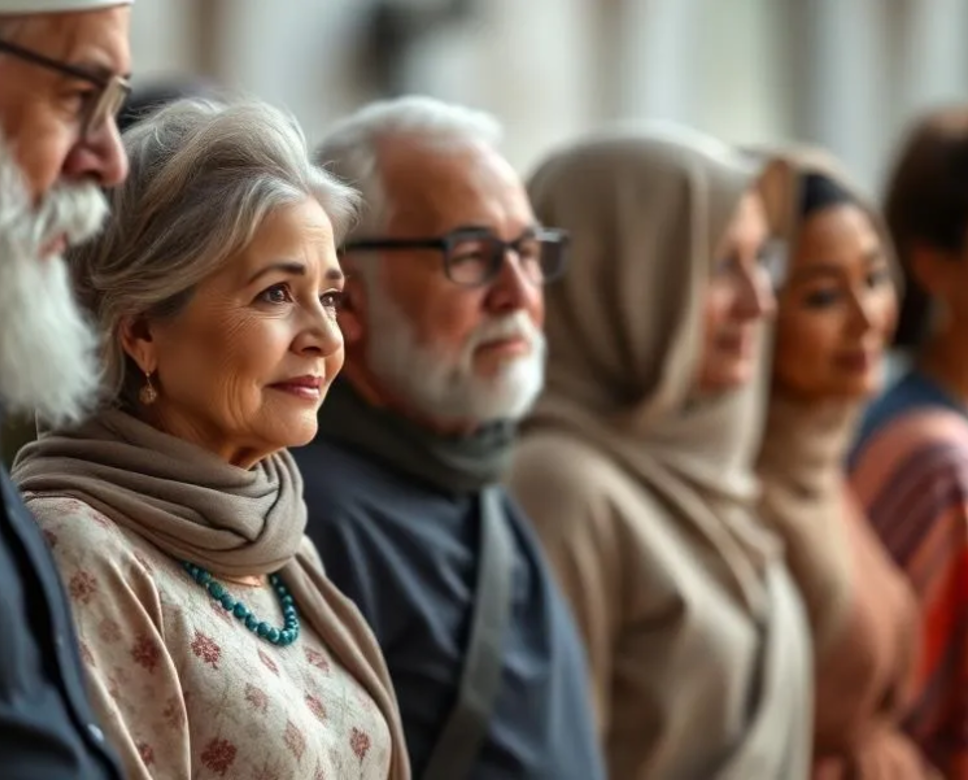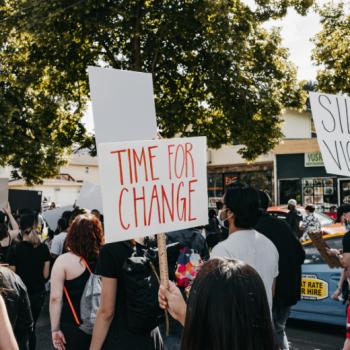I often get hung up on the phrase in the Declaration of Independence: “We hold these truths to be self-evident, that all men are created equal, that they are endowed by their Creator with certain unalienable Rights…” Don’t get me wrong, I appreciate it, but I also know now that when the founding fathers wrote it, they didn’t exactly mean all of humankind. This equality was reserved for white, male, adult property owners.
It is no wonder we approach the Bible in the same way. Sure, some Christians might say all people are equal. But is this what the scripture actually teaches when you get to the root of it?
To get there, we needed a Biblical framework of justice to understand whether all people are actually considered equal in Christianity.

Equality in the Old Testament
From the very beginning, Scripture presents a foundational statement about equality: we are all created in the image of God—Imago Dei (Genesis 1:27). This establishes an initial even playing field.
Then, as the Bible’s story arch unfolds, sin disrupted the good, beautiful, and ordered world God created. With it came all varieties of brokenness, including abuses of power and systemic injustice.
Does the Judeo-Christian Law Promote Inequality?
The world has changed by the time the stories of the Old Testament are recorded, where unfairness and inequality are not just obvious, but often accepted, sometimes even prescribed. Does this mean God is for oppression and inequality?
I have personally struggled with certain passages, where cultural practices—such as patriarchy, Israel being set over other races, and the Levites being set apart. There sure seems to be a lot of favoritism to me!
To really understand equality through a Biblical justice perspective, we need to understand three things:
- The purpose of the law
- The law gives a framework for justice
- How faith trumps the law
The Purpose of the Law
Paul explains that the law was necessary to reveal our brokenness and show humanity’s need for redemption through Christ:
- “For no one can ever be made right with God by doing what the law commands. The law simply shows us how sinful we are.” (Romans 3:20, NLT)
- “The law was our guardian until Christ came; it protected us until we could be made right with God through faith. Now that the way of faith has come, we no longer need the law as our guardian.” (Galatians 3:24-25, NLT)
But despite these defining statements, we know the law can’t totally bring rightness and restoration.
A Framework For Justice
One thing we do get from the law, though, is a framework for what justice looks like on an individual, relational, and social level. A whole new society was being formed after they left Egypt in which we can see God’s value for what is right and good. There are characteristics that are consistent in Old Testament law, from relational protection, to resetting economic systems, and safety nets.
The Prophets are a great place to start. They consistently called out Israel’s injustice and were able to point out these expectations. For example, the books of Isaiah, Jeremiah, and Amos are filled with righteous anger against oppression, favoritism, and economic inequality.
Another thing that is easy to miss in the Old Testament is that Israel regularly didn’t actually follow God’s best for them. For example, God wanted Israel to stay under a judge system, but they demanded a king (and God granted that with a warning).
Faith Over Legalism in the Old Testament
Regardless of the structure of ancient Jewish society, God repeatedly moved on behalf of those outside the law who demonstrated faith. Many individuals—particularly women—should not have been justified by religious standards, yet God saw them, met them, and even included them in Jesus’ genealogy (Hagar, Rahab, Ruth, Tamar).
Our “founding father,” Abraham, was justified by faith and not by adherence to any law:
- “Abraham believed God, and God counted him as righteous because of his faith.” (James 2:23, NLT)
David, who by the law should have been in serious trouble for eating the priests’ showbread, was later praised by Jesus for understanding that mercy and necessity outweigh ceremonial regulations:
- “Jesus said to them, ‘Haven’t you ever read in the Scriptures what David did when he and his companions were hungry? He went into the house of God and broke the law by eating the sacred loaves of bread that only the priests are allowed to eat.'” (Mark 2:25-27, NLT)
Equality in Jesus’ Ministry
By the time Jesus arrived, He went to great lengths to uplift marginalized groups—women, the disabled, the sick, eunuchs, foreigners, and the socially outcast. At the same time, He condemned those who saw themselves as superior—particularly the Pharisees, who looked down on others.
Equality in the Early Church
In the early church, Paul made multiple groundbreaking statements about equality:
- “There is neither Jew nor Gentile, neither slave nor free, nor is there male and female, for you are all one in Christ Jesus.” (Galatians 3:28, NLT)
- “Here there is not Greek and Jew, circumcised and uncircumcised, barbarian, Scythian, slave, free; but Christ is all, and in all.” (Colossians 3:11, ESV)
- “For there is no distinction between Jew and Greek; for the same Lord is Lord of all, bestowing his riches on all who call on him.” (Romans 10:12, ESV)
- “For in one Spirit we were all baptized into one body—Jews or Greeks, slaves or free—and all were made to drink of one Spirit.” (1 Corinthians 12:13, ESV)
- “For he himself is our peace, who has made us both one and has broken down in his flesh the dividing wall of hostility.” (Ephesians 2:14, ESV)
These do not erase differences, but rather they all affirm that people have equal worth because Jesus removed the barriers of separation.
Ultimately, the Bible affirms that all people are equal before God—not by human effort or societal systems, but through faith in Christ. And as Christians, we are called to live out that equality in how we treat others, both personally and in the structures we implement and support.














